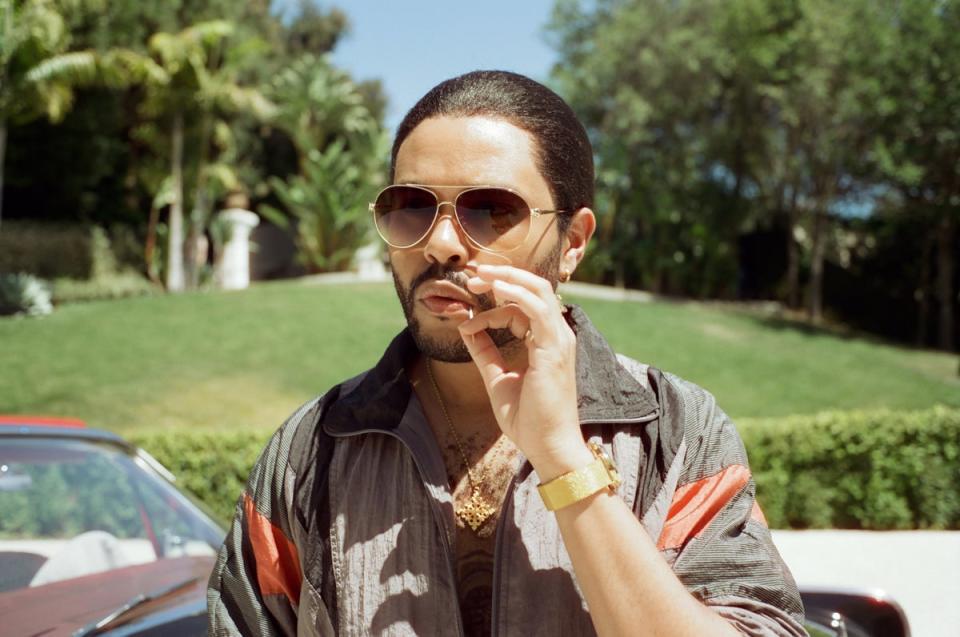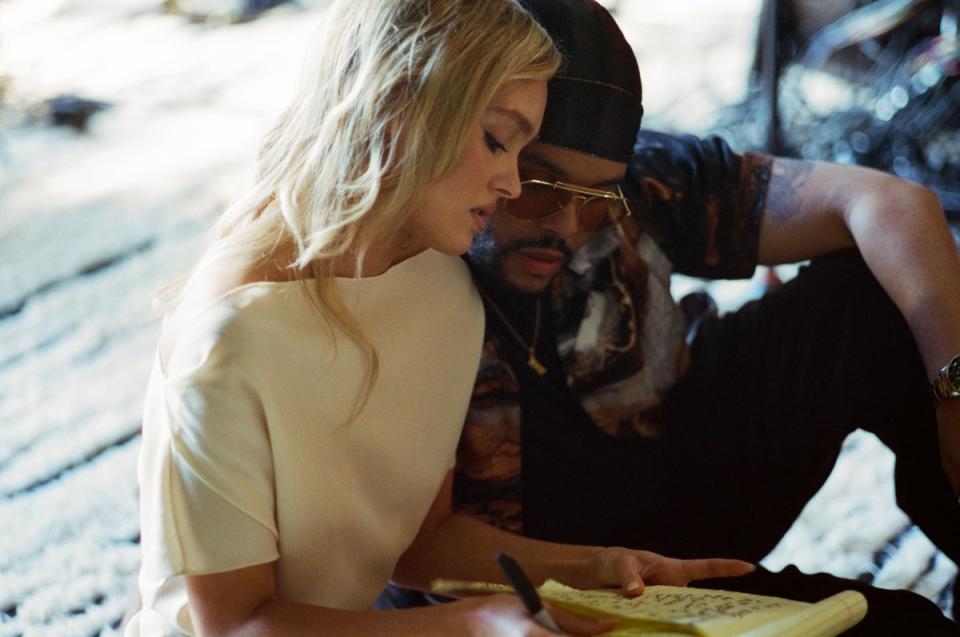The Idol review: The Weeknd’s troubled series is even more troubling in its depiction of women

The first two episodes of HBO’s The Idol arrived in Cannes, where I saw it, steeped in scandal, the series’ original director Amy Seimetz having jumped ship with a rumoured 80 per cent of the series already in the bag. Anonymous sources told Rolling Stone that this was at least partly due to musician turned actor-producer The Weeknd – AKA Abel Tesfaye – objecting to the show’s attention on the female perspective, and wanting more focus on his character Tedros. Following an overhaul, Euphoria’s Sam Levinson then took the helm. With HBO billing it as “the sleaziest love story in all of Hollywood”, all eyes were on The Idol.
The series opens with a close-up of pop star Jocelyn (Lily-Rose Depp) being photographed. When asked to run through a gamut of emotions, she is superb at instantly reacting to the photographer’s requests. The camera then pans out, showing the many people working on the shoot.
As her manager Chaim (Hank Azaria), her PR guy (Dan Levy) and her reptilian record label rep Nikki (Jane Adams) watch Jocelyn writhing on a table, almost naked, her breasts exposed, the men comment on her hospital wristband, worried she is romanticising mental illness. It emerges that the singer is in the midst of a breakdown following the death of her mother, which seriously derailed her last tour. Mentioning her fragility, Nikki states she is: “A little Sharon Tate”. This seemingly throwaway reference to the late actress and model – who was murdered by the Manson Family cult in 1969, while eight and a half months pregnant – is actually the first signpost indicating what to expect in the ensuing episodes.
When Jocelyn goes out clubbing with her principal dancer Dyanne (K-pop star Jennie Kim), she meets Tedros (Tesfaye) and is immediately smitten, though lord knows why, for Tesfaye is one of the least charismatic characters on TV. It soon transpires he is some kind of cult leader, and when he and his entourage arrive at Jocelyn’s home in episode two, there is a feeling that we are in the presence of a Charles Manson wannabe.

Jocelyn’s vulnerability as a star is cleverly dealt with. Dyanne sings for Nikki and is immediately offered a demo. Chloe (Suzanna Son), one of Tedros’ acolytes, plays the piano and sings; her voice is beautiful. Jocelyn is surrounded by talent, and her position as a global superstar is in increasing jeopardy.
The extremely troubling issue with The Idol is its depiction of women. As Jocelyn, Depp spends most of her time semi-naked, either dancing (after two episodes, I feel like I could have a decent go at her music video choreography, which is shown repeatedly) or performing sex acts. She has no real agency and there is more than a strong hint of 50 Shades of Grey, the woman objectified, humiliated and physically hurt. Asphyxiation crops up frequently in the first two episodes, Jocelyn either pressing down on her throat while masturbating or having a sash bound tightly around her neck. While Depp is virtually naked throughout, Tesfaye barely even takes his jacket off.

As Donna Summer’s Love to Love You plays over the end credits of episode two, we realise that sexiness is absent in The Idol, for all Depp’s loveliness. Instead, it feels more like sleaze and torture porn. This is a shame, for Depp is fine as the damaged Jocelyn, and – Tesfaye aside – she is supported by an excellent cast, including Rachel Sennott as Jocelyn’s personal assistant and best friend Leia. What a shame we won’t get to see Seimetz’s original version – what a series that might have been.
The Idol is available on Sky Atlantic and NOW

 Yahoo News
Yahoo News 
